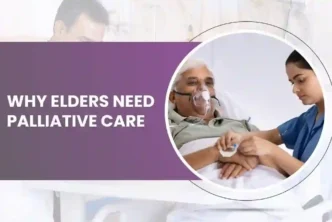The foundation of the entire system in the complicated world of healthcare, where patient care is paramount and operational effectiveness is crucial, is the verification of insurance coverage. Although the procedure may appear regular, its importance cannot be emphasized. It’s important to accurately and promptly verify a patient’s insurance coverage in order to protect not only the patient’s experience but also the proper payment of medical services.
This article explores the critical role that insurance eligibility verification plays in improving patient treatment, streamlining administrative procedures, and ensuring the financial stability of healthcare providers.
What is an Insurance Eligibility Verification?
Insurance eligibility is a very critical component for any healthcare provider. It is the process through which a healthcare provider verifies whether or not the patient is covered under insurance at the time of coming to the hospital. It also checks the patient’s liability for coinsurance and copay to be informed to the patient in advance.
It is usually done by hospital or clinic staff. However, there are outsourcing firms that offer insurance eligibility verification services and handle the process by themselves. They do all the work and inform the healthcare provider of the necessary details. You need an experienced team who knows the entire process and can handle payment and insurance situations as well.
Why is Insurance Eligibility Verification Important?
There are many reasons why a healthcare provider should invest its time in doing insurance eligibility verification. Let’s look at some of them below:
-
Claim Management
The healthcare system works and operates on cash they receive from insurance companies and patients. If they raise a claim and it gets approved, they are paid; otherwise, it goes as a bad debt or in collections. If the insurance verification is done properly, hospitals will know whether the claim will get approved or not in advance.
Therefore, before admitting the patient to the center, it is always recommended to get their insurance eligibility verification done to avoid claim rejections. If a claim gets rejected, it is a very time-consuming and challenging task to get it approved again.
-
Revenue Cycle Management
The technique the healthcare system employs to manage its revenue is known as revenue cycle management or RCM. The process starts with initial visits and continues till the payment is made. RCM is a necessary point to ensure the healthcare system is able to run smoothly. Without proper revenues, the operations can come to a halt.
This process can be managed internally or with the help of a revenue cycle management company. Hospitals and clinics can outsource their RCM task to these companies to handle. These firms are experienced in ensuring the healthcare provider gets their money on time without any delays and rejections.
-
Patient Satisfaction
For any hospital or clinic to run successfully, they need to ensure their patients are satisfied. A patient’s satisfaction can happen in two ways – by offering them the best treatment and making sure their claims are not rejected. Treatment can be managed with the help of doctors, and for claims, insurance eligibility verification comes into the picture.
If the insurance verification is done, there will be less claim rejection, so fewer instances of resubmission. The resubmission cases impact the patient’s financial situation. If the claim doesn’t get approved, they will have to pay from their pocket.
-
Compliant with Rules and Regulations
Every healthcare system has to comply with the rules and regulations set by HIPAA. It is an association that ensures patient’s medical records and health information are well secured. When the healthcare provider does a proper insurance eligibility verification, it also checks every detail of the patient.
These details include the patient’s personal information, insurance details, and health-related details. All this information is later entered into the system as a part of the insurance verification. Thus, making sure it complies with the regulations laid by HIPAA.
Wrapping Up
Verifying insurance eligibility is the glue that holds the intricate and intertwined tapestry of contemporary healthcare together. It is abundantly clear that the benefits of precise and effective verification go well beyond administrative responsibilities. Patients may confidently seek out the care they require, which resonates in the doctor-patient relationship. It has an impact on the financial security of healthcare facilities, enabling them to run effectively and deliver the highest quality of service.





